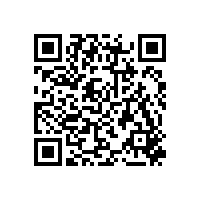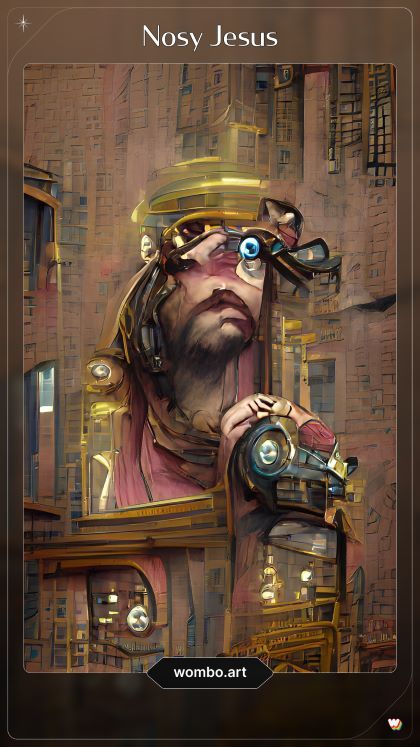TWELVE - Forlorn Binet
Published by Reblogs - Credits in Posts,
What could be more vulgar than to arbitrarily give -- from a childish desire for verisimilitude or, at best, mere convenience -- an invented name to an invented character?
In my opinion, [it] should have gone further:
What could be more vulgar than an invented character? - Laurent Binet, in HHhH
I decided to take a break so that I might clear my mind as I pondered where Emma was pointing me to next. I made myself an espresso, and as I sipped it, the comment I had read about me, earlier, in Emma's 'mistakenly'(?) revealed document; the first document of hers I had read in this adventure. I remembered the comment about the letter to Laurent Binet, and her suspicion that I did not mail the letter like she asked me to. That was in fact the case, but I also didn't lose it. When I realized I had waited too long, I hid it, then pushed it out of my mind. Until now. This very espresso seems to have brought it to my mind, and as it will turn out, I'm glad the idea occurred to me now: Since I'm not really going to send it now, and certainly won't confess to having not mailed it . . . why not just open it?
I don't often do things like what I'm about to describe having done. It violates several ethical principles I aspire to hold, and it violates a whole lot of other artistic and literary principles I pretend to hold but don't actually hold. So here's my confession.
I remember exactly how Emma asked me, many months ago, to please post her letter to Laurent Binet, as she was in a rush to drive to Andalucia to spend a solid 10 days writing under a sun umbrella on the beach in Málaga, Spain. She was to be back in ten days, so I left the letter right where it was, on a table near the front door, to take care of later. It was just so it would signal to me 'Oh yeah, I gotta mail that letter for Emma'. It did signal that. I ignored it every time. (So, I'm absolving the letter of all wrongdoing, and I accept responsibility for my inaction). Then, next thing I know Emma's FJ Cruiser growls up the street and I notice the letter and hide it right away. Then I forgot about it again, and when I remembered, I realized it was way too late to mail it now, so I put it aside to tell Emma about later. I couldn't in good conscience simply throw it away.
Laurent Binet is one of Emma's favorite living writers, and now one of mine too. Early in our friendship, one of the things that brought Emma and me together was what turned out to be our shared passion for the clever and very intelligent way that Binet writes and thinks. We learned this when, even though we had already both read the book, we listened to the audiobook for The Seventh Function of Language for the first time, together.
Emma had met Laurent Binet several times in various situations, once at a seminar about Roland Barthes, once at a book signing (but not a book of his or hers), and other functions. Emma is rather against making rockstars out of authors. She opted for more for crafting stories out of rock. So I was very surprised that she was so close with him as to have a literary relationship with him . . . with ink, paper, and letter carriers involved, no less!
Unfortunately, it seems the two of them rely on some shared code, because although I know what was written on those pages, I cannot for the life of me understand what it is supposed to be. I'll quote a sample paragraph from the four page letter:
"Viesti, jonka sinun pitäisi ymmärtää tästä kirjeestä, ei sisälly kappaleisiin, joita ei ole kirjoitettu kreikaksi. Toisin sanoen, vaikka tämä osa saattaa olla mielenkiintoinen, syy kirjoitukseeni sinulle on kirjoitettu kreikkalaisella kirjaimella, joka on alla, toisessa kappaleessa."
I don't even know if that's a language at all, but it seems orderly enough. I would say that it's a foreign language except that the very next paragraph is certainly not the same language. It says:
"Aslida, ushbu to'rt sahifaning aksariyati so'zlar va matnlar bilan to'ldirilgan bo'lib, ular izchil va go'yoki murakkab ma'lumotlar to'plami bo'lsa-da, asosan to'ldiruvchi matndir. Bu ambitsiyalarga ega bo'lmagan so'zlar,"
then:
"ყველაზე მნიშვნელოვანი ის არის, რომ თქვენ უბრალოდ წაიკითხეთ ის ნაწილი, რომელიც ბერძნული დამწერლობისაა. იქ იპოვი ჩემი შენთვის დაწერის ერთ და ერთადერთ ჭეშმარიტ მიზეზს, ჩემო მეგობარო."
That last sentence was in Georgian, if I'm not mistaken.
I mean Georgian, the language spoken in the Nation-State of Georgia (jhee-YOUR-chya), rather than the People's Republic of Georgia (DJOAH-djuh) in The United States of America.
I don't know how to read Georgian any better than I could navigate the African savannah, but I know a Georgian script when I see one lurking on a street corner asking for some precious. You know what I mean?
Like that Elvish-type script that looks like you need to have specially shaped eyes to makes sense of it?
Wait, is that racist?
Do Georgians have any kind of . . . oh dear
. . . I just,
well anyway
It's a curvy script.
I had a feeling there was something really interesting contained in the pages, but I would never be able to figure it out in time to get it in the mail before Emma came home. As I got out a new envelope from my desk so that I could re-address and send Emma's letter in a fresh envelope with no signs of tampering, I discovered that the envelope itself had writing on it, on the inside! I carefully cut open the envelope itself and read:
"Laurent, je suis presque prêt à recommander J2CB pour une formation formelle. Je m'attends à ce qu'il coopère. Comme promis, j'ai placé l'appât. La septembre fonction est déguisée en erreur typographique.",
which in English is something like,
"Laurent, I'm almost ready to recommend J2CB for formal training. I expect him to cooperate. As promised, I placed the bait. The September function is disguised as a typographical error."
I grinned ear to ear at how clever that was of her. 'September function'! She was making a joke about the 'seventh function' (the famous seventh function in The Seventh Function of Language . 'I get it Emma, well done!' I thought to myself. And I smiled too because I swiftly deduced that J2CB is me (Jean-Jacque Charles Boudrillard)
It dawned on me then that Emma had planted this for me to find, and that therefore, she had been planning this a very, very long time. Maybe I was supposed to have been so curious that I opened it right away. What did she take me for, though? I don't read other peoples' mail.
It dawned on me then that I had indeed done just that. The only factor was the timeline. I looked closely at the envelope again. It was addressed to Laurent Binet alright. Laurent Binet at our own address, here, 2 Rue de l'École de Médecine, 75006 Paris, France
The next step was obvious, because it was now obvious what the crystal balls of Homunculus were supposed to lead me to: The Seventh Function of Language.
I quickly find the file in Emma's database named The 7th Function of Language (carefully noting that it uses the numeral 7 rather than the word 'Seven' for whatever that's worth), and I click on it.

The screen goes blank for a few seconds, and then flashes back on with a rather curt clue in the form of a gigantic QR code. ('That's a sign, right, Laurent?' I mutter in admiration of Laurent Binet, as if he were there in the room with me, or, like Jesus, invokable through some mental mode (because, yes, Jesus is always there and listening, etc., but you aren't meant to think about that fact all the time because then Jesus becomes more like a bodycam that won't turn off, and that's not the Jesus most of us need).

The QR Code leads me to an iPhone app in the App Store called 'WOMBO Dream'. I'm intrigued. I download it. It's free. I feel proud to be an American expat living in France because I am proud to be of The People Who Invented The iPhone in California. My connection is slow, so I wait out the download.
While it's downloading, I get to thinking, that if I had simply mailed the letter, her plan would have been flawless, as I would have asked why we were getting mail addressed to Laurent Binet. It was in my failure to be curious enough to open the letter that Emma's plan had been delayed. So, wow, she hacked around the problem of my ignoring the letter by concocting a very elaborate ruse to bring up the fact that I had not mailed the letter and yet probably had not yet opened it.
She was trying to get me to open the letter! This was her idea of 'adaptation' I guess. Clever.
I thought back to the first most powerful lessons I had learned in studying semiotics. One of them was that the signification of a thing is composed of not just one but of many signs, each enriching the composition of signs but of, like, sign-juice or something.
Emma really has a lot more patience than I do when it comes to these things, waiting with hope that the sign juices will mingle as they are meant to, but slowly developing a backup plan in case it turns out the first try went unnoticed. It occurs to me that it's a little bit like flirting, or riddles. Or bribes. Or cruising for sex in a park. Or testifying very carefully under oath. Or trying to figure out if this is just dinner or dinner plus sex without seeming to care either way. Or like the collective agreement we have to leave unspoken each day the fact that we now have yet one less day to live, since the only people who will understand its importance are nearing death anyway.
It's really not so much like that last example, but . . . it just comes to mind.
Anyway, if I were in Emma's situation with such a (seemingly) grand plan to execute, I'd be a nervous wreck if the clue she had floated in plain sight was never heard from again. A clue that was still viable, live, the next proper plot point of the game narrative Emma had dreamed up. But Emma was totally calm all the time. Hmmm.
Well, she had been, anyway, until the moment the clickety-clack of her keyboard stopped so abruptly that day that she left. But then, at what point were Emma's emotional expressions part of the act? And at what points were they heartfelt?
Or . . . is it possible that it's both?
The app finally finishes downloading just as I noticed that the computer screen was blinking yellow, then blue, then yellow again. It repeated this pattern five times, then finally settled on a blue screen with yellow letters scrolling after a semi-familiar logo that I couldn't quite put my finger on.

The instructions read,
"You are to enter a specific phrase into the input field of the WOMBO Dream app. In order for this to work properly, you must enter and submit the phrase that is displayed within 30 seconds of it appearing. A countdown will begin in a few moments. When it reaches zero, type the the input you see into the WOMBO Dream app."
A countdown timer appears now, counting backwards from forty-two. When it reaches zero, I read the screen, and am forced, bepuzzled, to pause.
A long pause, an enchanting bepuzzlement, and a deep breath followed.
